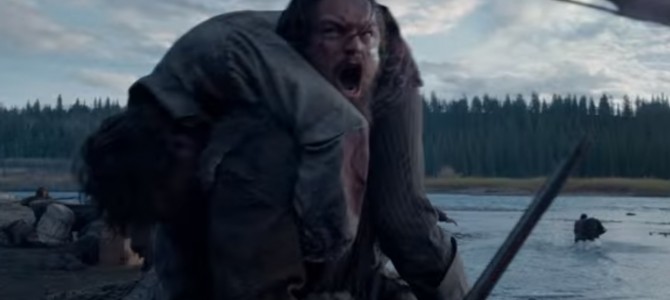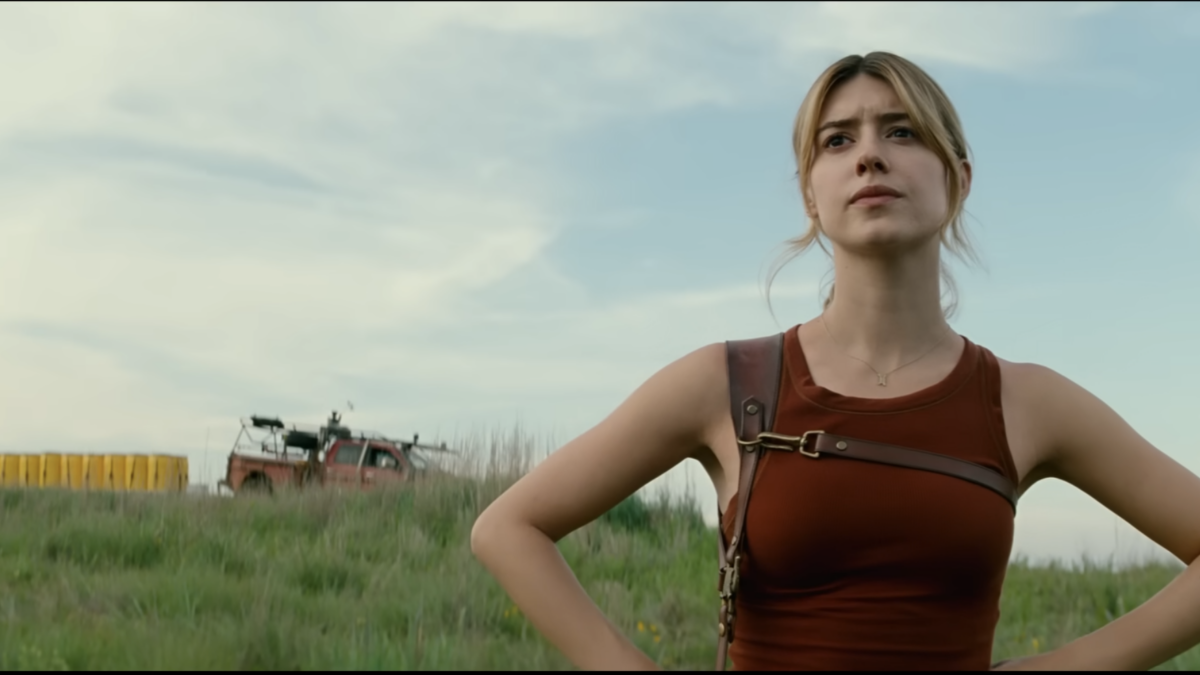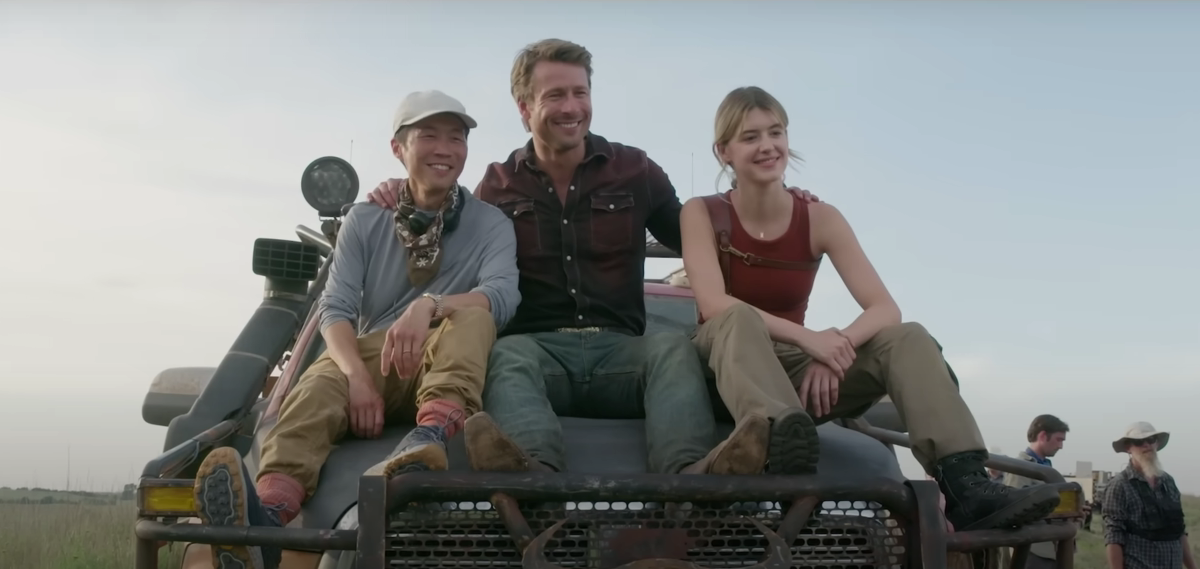There is plenty of blood in the 1820s survival flick “The Revenant.” Don’t worry. Guts make an appearance as well as frostbite, bone shatters, raw meat, and dead bodies. Mostly, though, it’s about blood. How much can a man lose and still function? How much can spill on white snow or drain into a crystal river?
The movie follows the general outline of a true American tall tale (or factual story). A fur trapper named Hugh Glass (Leonardo DiCaprio) miraculously survives a savage attack by a momma bear protecting her cubs. Torn up, bleeding, barely alive, he is dragged by his fellow trappers toward civilization, through snowfields and icy mountains. The men are cold, hungry, and terrified of the powerful Native Americans who lurk in the hills. Glass’s son, half Pawnee himself, stays by his side.
However, when the road becomes too hard, the troop leaves two men to see out the end of Glass’s life and decently bury him, because it is obvious he does not have long to live. Things don’t quite work out that way, due to betrayal by a man named Fitzgerald (Tom Hardy). Left for dead, Glass does not die.
Instead, he drags himself out of the wilderness, pained step by step, on a single-hearted mission of revenge.
A Good Villain, an Over-the-Top Protagonist
The movie feels like the 1820s. It’s dirty, dank, scrappy, stringy, and cold. It almost smells. The windswept icy mountains of the upper Midwest become a character in their own right: Frigid, unyielding, unforgiving.
Hardy is the best part of this movie, a villain with a smooth tongue and an unwavering trust in his own rationalizations. He sounds like a frontiersman; he justifies his evil behavior with the earnest, nearly plausible excuses of cowards and scoundrels throughout history. He talks of God and of justice as he betrays both. He needs killin’.
DiCaprio’s Glass is 75 percent heavy breathing, 10 percent moaning, and the rest belabored physical pain. He has few lines in the film, many of them in Pawnee with subtitles. His skill is survival.
Sometimes that survival becomes a little over the top. Not only does he fight a bear, but also the dead bear rolls down a hill and falls on him. Not only does he escape the natives on a stolen horse, but plunges over a ravine into a tree. Like the character, the movie is relentless. It never lets the audience rest.
A Toothy Film about Honor
The camera keeps moving, plunging the viewer into tension again and again. The forests, filmed in ethereal beauty, are sinister and simple: elegantly brutal like the film itself.
Ironically, even with all the blood and guts, the film leaves out the more brutal parts of the true story. It invents a son for Glass, giving him an emotional core that, apparently, was not necessary in the real story. Modern audiences don’t understand that a broken frontiersman man will travel thousands of miles to avenge a wrong and recover a stolen rifle. We’ve become so soft that even our ancestors’ tales do not resonate anymore.
Native Americans—the Pawnee and their enemies the Absaroka (known to white men as the Crow)— play a large part in the film. They also have their rivalries and betrayals, their savagery and honor.
Ultimately, the film is about honor, men with it and men devoid of it. With that comes a story of a man pitted against nature and surviving beyond what could be considered possible. This stretching need, this desire to take one’s measure and see how one stacks up against the universe, this shaking of a fist against mortality, seems to be a more masculine trait than feminine. So, too, does the desire to see limbs severed, blood squirt, eyes swell, and teeth break.
This film is a testosterone flick, the opposite of a chick flick. That is not to say that no women will enjoy it, only that many will not. Its purpose is grit, gore, strength, and endurance. It is simple and elegant in its simplicity, in its linear story and dogged determination.
And that is okay. Movies can be unapologetically masculine. Women can appreciate that without having to partake. This may not be the ideal date night choice, but will be a film many men enjoy.
“The Revenant” is rated R for language, a depiction of rape, and gory violence.









